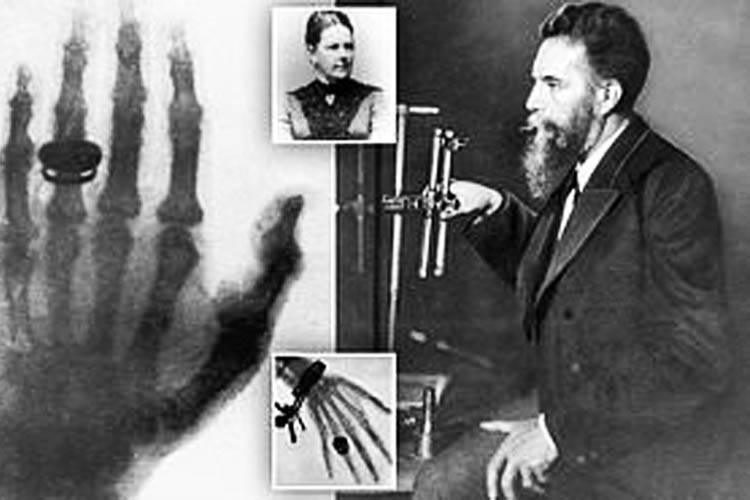The 8th of January, like every day, is marked by a series of remarkable events and milestones across various spheres of human endeavour. This day has witnessed significant developments in the realms of politics, science, culture, and beyond. Here, we’ll take an in-depth journey through some of the most notable occurrences on this date throughout history.
Today in History: 8 January

1. The Battle of New Orleans (1815) Perhaps one of the most famous events that took place on January 8 was the Battle of New Orleans during the War of 1812. Despite the Treaty of Ghent ending the war in December 1814, news had not yet reached the distant battlefront. Led by General Andrew Jackson, the American forces decisively defeated the British, a victory that boosted national pride and significantly raised Jackson’s political profile. He would later become the seventh president of the United States.
2. Elvis Presley’s Birthday (1935) On January 8, 1935, the “King of Rock and Roll,” Elvis Presley, was born in Tupelo, Mississippi. Presley’s impact on music, culture, and entertainment is immeasurable. His career spanned multiple genres from rock and roll to gospel, and he remains one of the best-selling solo artists in the history of recorded music.
3. Galileo Galilei’s Discovery (1610) Following his discovery of the four largest moons of Jupiter just a day prior, on January 8, 1610, Galileo Galilei observed what he first thought were three fixed stars near Jupiter. Upon further observation, he realized they were orbiting the planet. This discovery of celestial bodies not orbiting the Earth further challenged the then-dominant geocentric view of the universe.

4. The Introduction of X-ray Machines (1896) On this day in 1896, X-ray machines were introduced for the first time in the United States. Dr. Henry Louis Smith created the first X-ray image in the country, marking the beginning of a transformative era in medical imaging and diagnosis. This technological advance has since played an essential role in medicine, allowing for non-invasive insights into the human body.
5. The Signing of the Treaty of Cateau-Cambrésis (1559) On January 8, 1559, the Treaty of Cateau-Cambrésis was signed, ending the long-standing Italian Wars between the French Valois and the Habsburg Spain dynasties. This treaty redefined territorial control in Italy and marked Spain’s dominance as the preeminent power in Italy and much of Europe.
6. The First African American Governor (1870) Another significant event in American history took place on January 8, 1870, when Pinckney Pinchback of Louisiana became the first African American governor of a U.S. state. His tenure was brief, lasting only 35 days, but it was groundbreaking at the time and paved the way for future African American political leaders.
7. The Founding of the Food and Agriculture Organization (1945) On this day in 1945, the Food and Agriculture Organization (FAO) was established. As an agency of the United Nations, the FAO’s primary focus is to combat global hunger and ensure food security for all. The organization’s establishment underscored the international community’s commitment to addressing hunger and malnutrition.
8. The Release of Star Trek: Deep Space Nine (1993) In the realm of entertainment, January 8, 1993, marked the premiere of “Star Trek: Deep Space Nine.” As a part of the expansive Star Trek universe, this series took a unique angle, focusing on a space station near a strategic wormhole, rather than a traveling spaceship. It explored complex narratives around politics, war, and religion.
9. The Construction of the Pantheon (27 BC) On January 8, 27 BC, the Roman Senate granted Octavian the titles “Augustus” and “Princeps,” marking the beginning of the Roman Empire. It was during his reign that the Pantheon, a temple dedicated to all the gods, was constructed. Today, it remains one of the best-preserved ancient Roman buildings and is a testament to Roman architectural prowess.
10. The First Woman to Win a Major U.S. Party’s Presidential Ticket (1984) In U.S. political history, January 8, 1984, is notable for Walter Mondale winning the Democratic Party’s presidential nomination and choosing Geraldine Ferraro as his vice-presidential running mate. Ferraro was the first woman to be nominated for vice president by a major U.S. party.
11. The Death of Marco Polo (1324) The renowned Venetian explorer and merchant, Marco Polo, passed away on January 8, 1324. His travels to Asia and his subsequent writings introduced Europeans to Central Asia and China, expanding their understanding of the world. Polo’s accounts have since been both celebrated and scrutinized, but their impact on European exploration and cartography is undeniable.
12. The Launch of NASA’s Lunar Prospector (1998) In the quest to understand our nearest celestial neighbour, NASA launched the Lunar Prospector on January 8, 1998. Its mission was to orbit the Moon and collect detailed data, primarily about the Moon’s surface and any potential water ice deposits. The data from this mission has been instrumental in expanding our understanding of lunar geology.
13. The Establishment of the Boy Scouts (1912) On this day in 1912, the Boy Scouts movement began its expansion into the U.S. The Boy Scouts of America was incorporated on January 8, fostering the development of youth in areas of character, citizenship, and fitness. The movement, originating in the UK, has since become a global phenomenon, influencing millions of young people.

Conclusion January 8, like each day on the calendar, is filled with historical moments that have defined societies, pushed human boundaries, and influenced various fields of study. These events range from groundbreaking political milestones and breathtaking scientific discoveries to cultural shifts and tragedies that have shaped the collective human experience. They serve as both a reminder of our past and a beacon, guiding our future endeavors.
